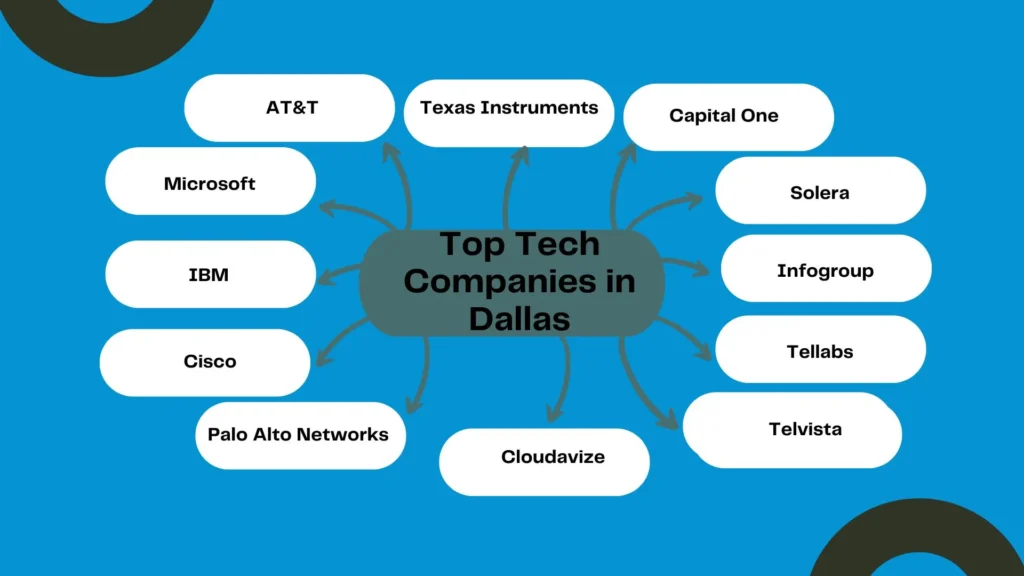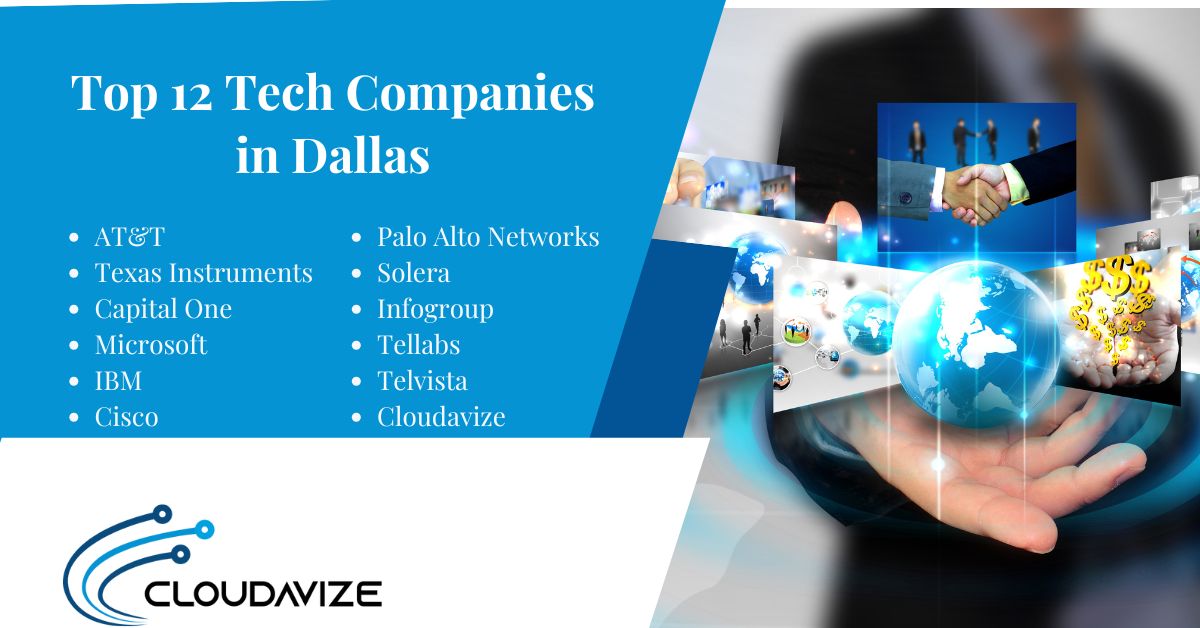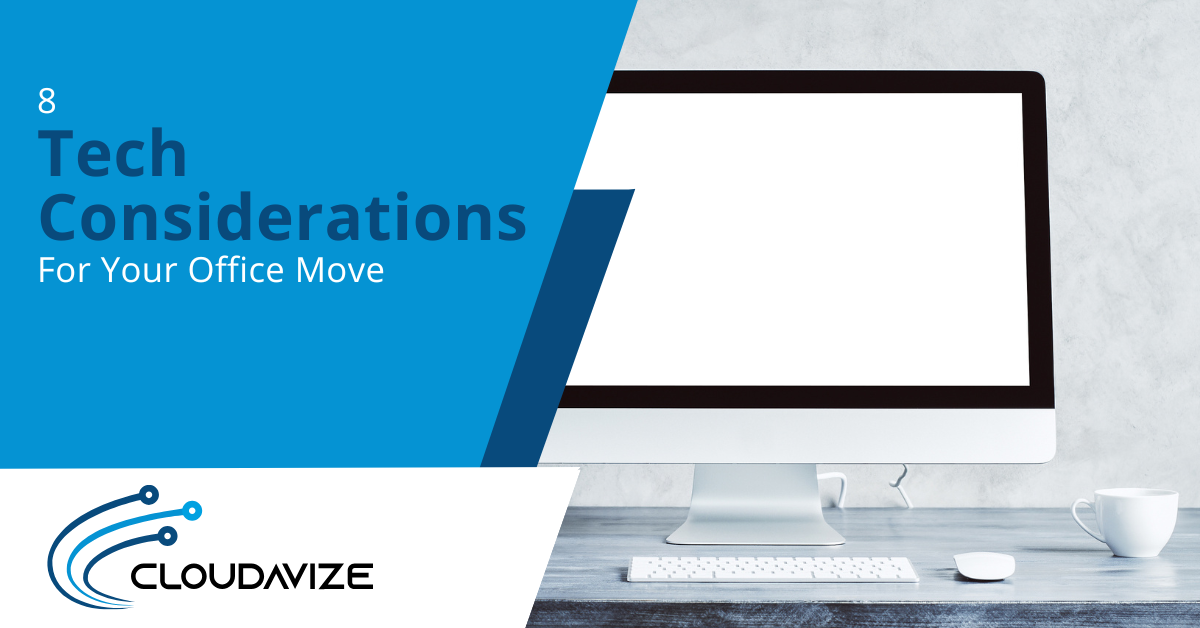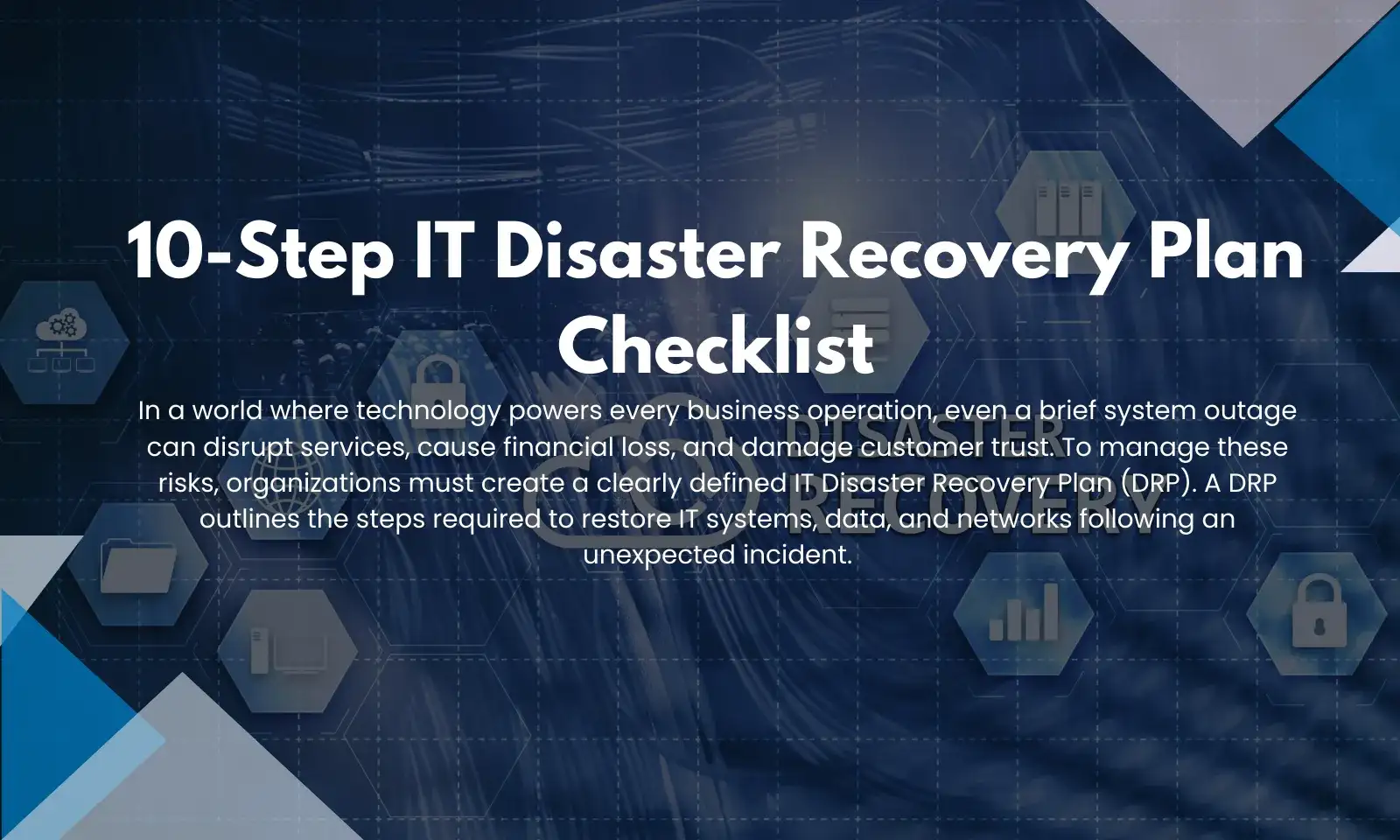Dallas has become a powerhouse for technology and innovation with some of the world’s biggest companies and local businesses. With cloud computing, artificial intelligence, cybersecurity, and managed IT services, these companies are shaping the technology landscape and creating thousands of jobs in the area. Dallas’s work ecosystem is all about innovation, collaboration, and sustainability, so businesses and talent are making it a tech epicenter.
This article highlights Dallas’s top 12 tech companies, selected through a rigorous evaluation process based on key metrics: industry leadership, innovation, job creation, and community impact. The achievements, influence across industries, and future plans of these companies demonstrate how they are driving transformation in their fields. From AT&T’s 5G leadership to Microsoft’s AI innovations and Cloudavize’s customized IT services, these companies embody what Dallas tech is all about. See how these top tech industries are changing their space and solidifying Dallas as a global tech hub.
Top Tech Companies in Dallas are:
- AT&T
- Texas Instruments
- Capital One
- Microsoft
- IBM
- Cisco
- Palo Alto Networks
- Solera
- Infogroup
- Tellabs
- Telvista
- Cloudavize

Table of Contents
1.AT&T
AT&T was founded in 1885 by Alexander Graham Bell, Gardiner Greene Hubbard, and Thomas Sanders. It has grown from the Bell Telephone Company (est. 1877) to the American Telephone and Telegraph Company, one of the world’s largest telecommunications companies. Based in Dallas, AT&T employs most of its 149,900 employees worldwide in this region.
AT&T’s history began with telephone services, and it pioneered the technology that makes modern communication possible. Today, it is shaping the tech landscape with 5G and fiber broadband. By 2029, the telecommunication company will have 50 million fiber locations. As a result of this fiber expansion along with 5G connectivity, AT&T is targeting a free cash flow of $18 billion by 2027. This means connectivity for millions of people, smart cities, remote work, and digital entertainment.
Looking ahead, AT&T is investing in innovation in edge computing and IoT. Over the next 10-15 years, it will solidify its position as a global leader in next-generation networks and connectivity across devices and industries. With $128.4 billion in revenue in 2023 and $89.8 billion in revenue in three quarters of 2024, it is a big player in the high-tech industry and is redefining the future of telecom and digital transformation. AT&T regularly features in the Fortune 500 and is a pillar of the tech industry in Texas and beyond.
2.Texas Instruments
Texas Instruments was founded in 1951 by Eugene McDermott, Cecil Howard Green, J. Erik Jonsson, and Patrick Eugene Haggerty. Initially known as Geophysical Service Incorporated (established 1930), which focused on seismic exploration and defense electronics, TI transitioned into electronics for the United States Armed Forces and semiconductor chips. Today, TI has grown into a global semiconductor giant and craved its way as a Fortune 500 company. With around 34,000 employees worldwide, TI is a big part of the Dallas tech ecosystem and employment.
Specializing in analog and embedded processing chips, TI manufactures industrial and personal electronics. Despite a 13.26% year-over-year revenue decline in 2024, with revenues down from $20.03 billion in 2022 to $15.71 billion, TI is focused on long-term growth. TI is investing up to $1.6 billion in three 300mm semiconductor wafer-manufacturing plants in Texas and Utah. These will increase semiconductor production capacity and help TI meet global demand for advanced semiconductor solutions.
For the coming years, TI is dedicating its resources to analog and embedded processing to keep its innovations moving forward in industrial automation, automotive, and consumer electronics. This strategic focus cements TI as the frontrunner for the future of high-tech industries.
3.Capital One
Capital One, founded in 1994 by Richard Fairbank and Nigel Morris, is a Fortune 500 company. Originally a monoline credit card company, it has expanded into auto loans, retail banking, and savings products and is a pioneer in the financial services industry. Its Plano campus fosters collaboration and innovation in Dallas. It is home to 51,987 of its global workforce and is significant for the local financial services ecosystem.
In 2024, Capital One announced a $265 billion community benefits plan for its proposed acquisition of Discover Financial Services. Developed with organizations like NALCAB, NeighborWorks America, and the Opportunity Finance Network, this plan is the largest of its kind and doubles the size of any community commitment tied to a bank acquisition. It shows Capital One’s commitment to lending, investing, and serving underserved communities.
Technology is at the top of Capital One’s agenda. They will integrate with the Federal Reserve’s FedNow instant payment system and become one of the few offering real-time payments. Their focus on mobile and online banking redefines the customer experience and their commitment to innovation. With 2023 revenue of $36.79 billion, they are well positioned to continue to lead in digital transformation and fulfill their mission of community development and financial inclusion. Over the next decade, they plan to expand their offerings, solidify their position as a tech pioneer, and advocate for access to financial services for all.
4.Microsoft
Founded in 1975 by Bill Gates and Paul Allen, Microsoft has established itself as a global technology powerhouse. As of June 30, 2024, it had 228,000 employees worldwide, up by 3.17% from last year. Its Las Colinas campus in Dallas is a big part of the local tech ecosystem, and Microsoft is a key player in employment and economic growth in the region. With a market cap of over $3.03 trillion and FY24 revenues of $245 billion, we are among the top 10 Fortune 500 companies.
Microsoft has invested in Azure, integrating AI across all platforms and expanding its global data center footprint to serve industries. In 2024, it bought 485,000 Nvidia Hopper AI chips, twice as many as its closest competitor. Microsoft is also building custom AI accelerator chips to improve performance and reduce dependence on external suppliers. It is also integrating its own and third-party AI models into Microsoft 365 Copilot to minimize cost and improve performance for enterprise customers.
Going forward, Microsoft will double down on the cloud and drive innovation through AI and sustainability initiatives to meet environmental goals. Research and development investments will improve user experiences and expand market share in consumers and enterprises. Microsoft will continue to own the future of tech and innovation.
5.IBM
Founded on June 16, 1911, by Charles Ranlett Flint, IBM started as a Computing-Tabulating-Recording Company (CTR), a record-keeping and measuring company. It has since grown into a global technology and consulting services company. With over 282,200 employees worldwide, including a strong presence in Dallas, IBM supports the local tech community and is a Fortune 500 company. Historically known for its hardware and software innovations, IBM has become a provider of enterprise solutions, including cloud and AI.
IBM reported $62.581 billion in revenue for the 12 months ending September 30, 2024, a 2.31% increase year over year. Recent focus areas include becoming NetZero by 2030 and converting its global data centers to 75% renewable energy by 2025, which it has already achieved in the EU. IBM Cloud is reducing greenhouse gas emissions by 65% and improving data center cooling efficiency by 20%. IBM embeds AI into business models to drive productivity and growth. CEO Arvind Krishna says businesses that adopt an AI-first approach will be the ones that innovate in the next decade. IBM’s strategy is to put AI across industries to automate tasks, IT operations, and customer service to create value for businesses everywhere. With its sustainability efforts, hybrid cloud investments, and quantum computing advancements, IBM is a force to be reckoned with in shaping the future of tech and delivering value to enterprises everywhere.
6.Cisco
Cisco, founded in 1984 by Leonard Bosack and Sandy Lerner, has grown from a networking hardware company to a global leader in cybersecurity, collaboration, and AI-driven networking. With over 90,400 employees worldwide, including a significant presence in Dallas, Cisco contributes to the local tech ecosystem while being a Fortune 500 company.
In 2024, Cisco reported $53.8 billion in revenue after investing in innovation and sustainability. The company announced a $1 billion global investment fund to advance secure and reliable AI solutions in foundational AI models, infrastructure readiness, and customer-focused advancements through partnerships with Cohere, Mistral AI, and Scale AI. The upcoming Cisco 360 Partner Program, launching in 2026, will modernize IT infrastructure, enable AI workloads, and bolster organizational security and resilience so customers are ready for the rapidly changing digital world.
Cisco is committed to sustainability, with plans to apply circular design principles to 100% of its new products and packaging by 2025. This means reuse, minimal environmental impact, and innovation across all product lines. In the future, Cisco will lead in secure networking, hybrid cloud, and sustainable IT infrastructure, so its technologies help businesses succeed in a more connected and secure digital world.
7.Palo Alto Networks
Palo Alto Networks, founded in 2005 by Nir Zuk, has become a global cybersecurity leader. With over 15,000 employees worldwide in 2024, including a growing presence in Dallas, it significantly contributes to the region’s cybersecurity ecosystem. Known for its innovative approach, Palo Alto Networks started with firewalls and has since added AI-driven threat detection, cloud security, and endpoint protection to its portfolio and is a Fortune 500 company.
In 2024, the company reported 16% year-over-year revenue growth to $8.0B, driven by its platformization strategy. Their shift from standalone products to integrated platforms grew their next-gen security ARR by 43% year-over-year to $4.2B. Palo Alto Networks’ commitment to innovation extends to their partnerships, such as their work with SLB to integrate Precision AI™-powered cybersecurity platforms across network, cloud, and edge technologies to protect AI and digital operations. Their joint work with Accenture is helping organizations adopt generative AI securely, addressing the challenges of AI-generated cyber attacks while unlocking AI’s potential.
Palo Alto Networks is doubling down on secure and ethical AI as a signatory of the EU AI Pact. Looking forward, they will continue to lead in global cybersecurity by focusing on zero-trust architecture, AI-powered threat prevention, and automation. With a bright outlook for next-gen security to reach $5.47B ARR by FY25, Palo Alto Networks is redefining the future of cybersecurity so businesses can safely and effectively adopt AI and digital transformation.
8.Solera
Founded in 2005 by Tony Aquila, Solera is a global leader in automotive technology and insurance software solutions. With 2,118 employees worldwide, Dallas is a central hub for the company and a key player in the regional tech and insurance industries. Originally focused on automotive claims software, Solera has expanded into data-driven analytics and provides solutions for the broader insurance and automotive industries.
In the fiscal year ending March 31, 2024, Solera reported $2.44 billion in revenue, a 3.55% year-over-year growth. Solera is at the forefront of innovation with tools like Sustainable Estimatics, which tracks and offsets carbon emissions across the vehicle lifecycle. This technology was recently integrated into Denmark’s Autotaks platform via a partnership with F&P, processes over 700,000 insurance claims a year, and sets new sustainability standards in the automotive industry. Solutions like Qapter Intelligent Estimating, Intelligent Triage, and the XpertCX Suite drive efficiency and precision in claims and help insurers achieve their sustainability goals.
Solera will expand into new markets and develop end-to-end solutions combining AI-driven analytics with sustainability-focused innovation. By continuing to add to its global data lake, Solera aims to deliver solutions for the changing automotive and insurance industries and create a greener future in the vehicle lifecycle.
9.Data Axle
Founded in 1972 by Vinod Gupta, Data Axle (formerly Infogroup) has grown from a direct marketing company to a global leader in data-driven marketing and real-time intelligence. With 3,146 employees worldwide and a significant presence in Dallas, Data Axle helps businesses with AI-enhanced analytics and CRM integrations, making it a key player in the Dallas tech ecosystem.
With over $750 million in annual revenue, Data Axle gives marketers a proprietary dataset of over 90 million businesses and 300 million consumers with over 700 attributes. In 2024, Data Axle activated Generative AI (GenAI), and now our clients can use multi-touch attribution, predictive modeling, and natural language processing to create more precise and effective marketing. Partnerships with Amazon Web Services, Intelafy, and MoveFlux amplify these capabilities and solidify Data Axle’s position as a leader in AI and data-driven marketing. Recent additions include Audience360™, a cloud-based platform for data management and distribution for telecommunications and healthcare insurance clients. They have invested in proprietary datasets and saw 8.3% growth in business data, 11% growth in consumer data, and expanded coverage of verified small and medium-sized businesses (SMBs).
Data Axle continues to be a global leader in data intelligence and marketing technology, combining 50 years of expertise with the latest technology. They help businesses implement next-generation marketing and achieve unmatched operational performance and strategic insights in a rapidly changing digital world.
10.Tellabs
Tellabs was founded in 1975 by Michael Birck and John Goeken. From its beginnings in telecommunications equipment to today’s optical LAN solutions for enterprise networks, Tellabs has 1,290 employees and is a key player in the Dallas telecommunications industry. It creates jobs and innovation and uses its expertise to solve today’s connectivity challenges.
Recent advancements include the introduction of the Tellabs FlexSym Optical Network Terminal 203W (FlexSym ONT203W), which supports luxury offices, retail, healthcare, and clean manufacturing environments. Multi-gigabit Ethernet, 10-gigabit Passive Optical Network, and Power over Ethernet, the FlexSym ONT203W addresses the growing need for bandwidth and secure, efficient networking. System Release 31.4 (SR31.4) software also enables discreet and secure installs in any environment. In response to growing cyber threats, Tellabs has added security to its Optical LAN solutions with encryption and centralized management. This simplifies network management and provides unmatched protection for enterprise networks. Looking to 2025, Tellabs will launch new products and attend global events to showcase its latest and greatest and help customers expand their infrastructure and network.
With 2023 revenue of $1.1 billion, Tellabs is focused on growing market share by going green and energy efficient with its networking solutions. By combining innovation and sustainability, Tellabs is poised to lead the transformation of the telecommunications industry and empower businesses with next-gen network technology.
11.TelVista
Founded in 1997 as part of Grupo Carso, Telvista has grown into a major IT and business process outsourcing (BPO) company with over 7,000 employees worldwide, including hundreds in Dallas. Under CEO Jorge Rodriguez, Telvista supports industries like healthcare, retail, and telecommunications and is a big part of the Dallas workforce. Originally a customer service and support center, Telvista has grown to offer full digital transformation solutions and is a top BPO company in the US.
Telvista’s recent innovations include customer relationship management (CRM) and process automation to improve efficiency and user experience. For one client, Telvista’s CRM solution handled 3,100 calls daily, reduced help desk calls by 8%, reduced cost per case creation by 25%, and converted 6,500 monthly calls into IVR transactions. This streamlines operations and reduces wait times, reduces abandoned calls by over 50%, and maximizes equipment uptime for retail stores.
With $1.3B in US revenue in 2023, Telvista wants to grow its US presence by adopting AI and automation. By using these tools, they can offer best-in-class solutions to improve operations and customer experience. As Telvista continues to evolve, it aims to be the leader in customer support and IT outsourcing across industries so businesses can succeed in a digital world.
12.CloudAvize
Founded in 2019 by Cody Sukosky, Cloudavize has become a trusted managed IT services provider in Dallas. Focused on mid-sized businesses, Cloudavize is a key player in the local IT services space, especially in cybersecurity, cloud migration, and managed IT services. Cloudavize serves various industries, including accounting, biotechnology, construction, education, legal, and oil and gas, and delivers customized solutions to each business need.
Cloudavize’s services include IT support, cybersecurity services, network support, cloud services, and emergency IT support. Recently, the company has been focusing on expanding its cloud migration expertise and providing reliable backup and recovery services so its clients can stay up and running. With $5M in revenue, Cloudavize is looking to scale in Dallas and beyond and grow in the SMB market. By delivering IT solutions and innovation across multiple industries, Cloudavize will be the go-to partner for businesses that want seamless IT and robust cybersecurity.
Conclusion
These 12 companies are the driving force behind Dallas’s rise as a global technology powerhouse. Their advancements in AI, cloud computing, telecommunications, and cybersecurity are reshaping industries and setting benchmarks for innovation. Collectively, they contribute to Dallas’s reputation as a city that balances cutting-edge technology with sustainable growth. Compared to traditional hubs like Silicon Valley and Austin, Dallas stands out for its affordability, collaborative ecosystem, and a mix of global giants and emerging innovators. This unique combination positions Dallas as a leader in fostering talent, partnerships, and economic resilience, making it a key player in the future of global tech.



